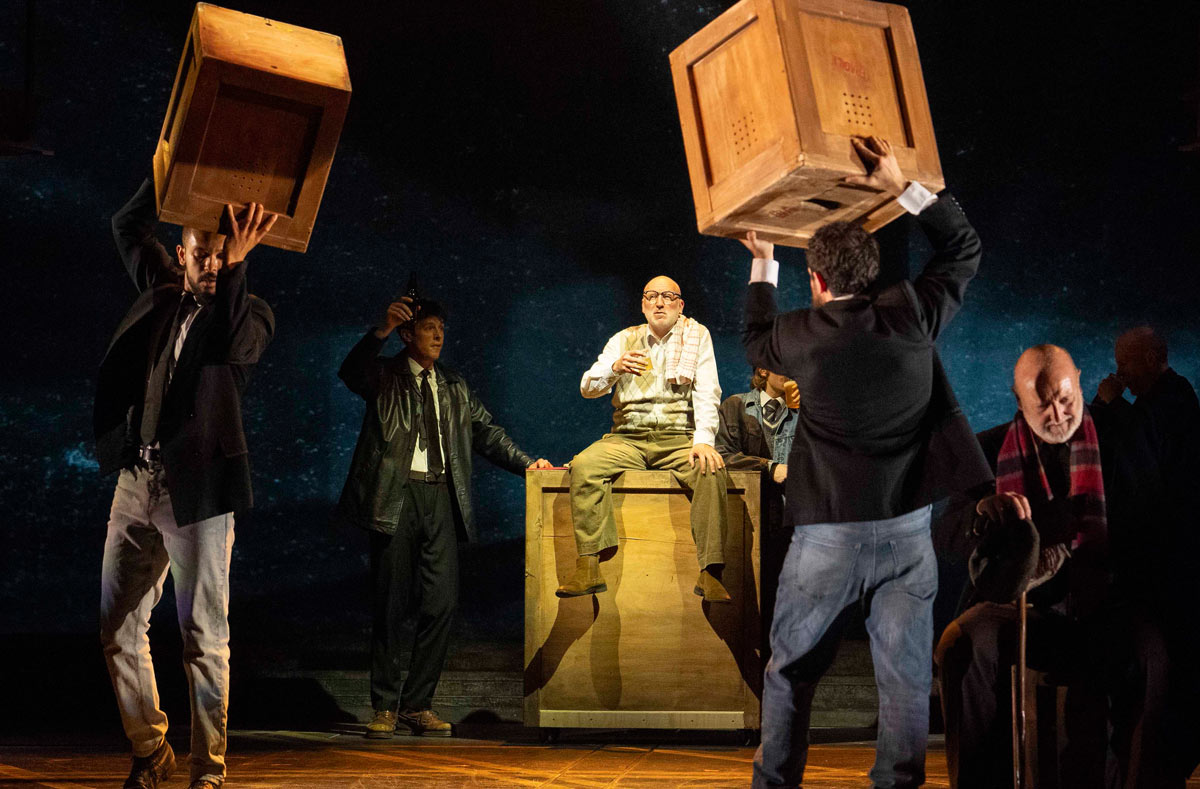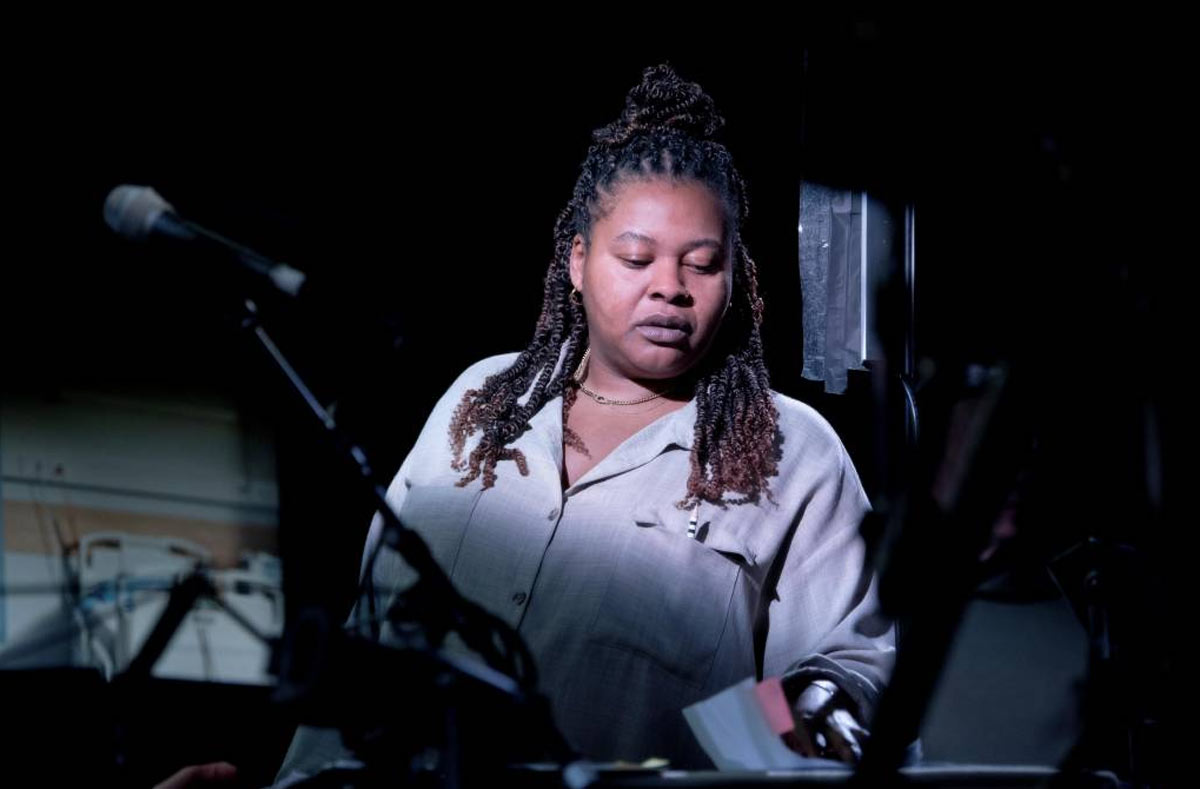Adapted by wunderkind James Graham, the material has a couple of tricky hurdles to traverse from the outset. Firstly, there’s the heavy scouser dialect which so strongly identified the source material and fed its rich seam of deadpan humour. In the main any potential issues have been successfully worked through and the actors deliver the dialogue with pith, punch and pathos. The second and potentially more troubling hurdle (certainly from a theatrical standpoint), is the fundamental change in societal behaviours and tropes which have occurred since transmission of the original television drama series. With its 1980s dole offices, Thatcher’s war against the unions, and the decimation of the former industrial strongholds of coal-mining, steel (and specifically here) the dockyards, there was always a danger that outside of Liverpool, the material might not resonate as strongly with audiences. In this regard, the play lacks a little oomph in places despite its focus on relaying the very human tragedy of cities whose workers had been provided with no Plan “B” once their main industries were declared unprofitable by Tory central office. A recent Sheffield transfer (“Standing at the Sky’s Edge”) managed to circumvent such inherent issues by giving the material a musical treatment and one wonders what could yet be achieved were this extraordinary cultural gem to receive similar makeover.
There is strength and power in the working class references - pride in putting on your overalls on a Monday and pride in putting on a suit on a Friday - and the dockers’ realisations and resignation that the shallow Mersey was never going to be suitable for modern container shipping. Reference is also made to the fact that geographically speaking, facing west was a fundamental disadvantage when trade was transitioning to European markets. Indeed, one of the loudest laughs of the evening on press night resulted from the sheer contempt for Felixstowe which just happened to be in the right place to take advantage of those aforementioned changes to trading conditions.
Under Kate Wasserberg’s direction the cast of Nathan McMullen, Barry Sloane, Philip Whitchurch, Lauren O’Neil, Mark Womack, Aron Julius, Helen Carter, George Caple, Jamie Peacock and Dominic Carter deliver all the required realism, desperation and wry stoicism, on Amy Jane Cook’s relatively simply set which combines wrought iron grittiness with tea chests and dilapidated 70s furniture.
As one of the last remaining blackstuff boys (those who took pride in laying smooth surfaced tarmac on roads) Yosser’s final confrontation with the police is choreographed in slo-mo and is a tragic metaphor for the wholly one-sided and doomed fight of an entire generation of industrial workers against Thatcher’s determined onslaught. A projected image of her near the beginning of the piece, induced an involuntary shudder in some audience members, but in Bernard Hill’s recent passing (at just shy of 80 years) there was also a tangible realisation just how much time has elapsed since those cruel days - and perhaps, even how little we have learned from them.

 Cast of Boys from the Blackstuff at the National Theatre. © Alastair Muir
Cast of Boys from the Blackstuff at the National Theatre. © Alastair Muir

